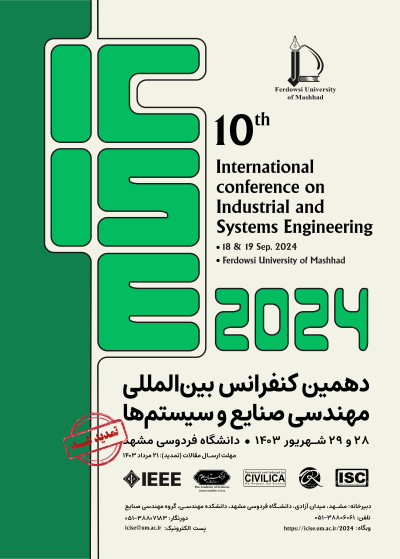0% Complete

نویسندگان :
کلمات کلیدی :
چکیده :
لیست مقالات بایگانی شده
فرنوش جان فزا - ، سیده زهرا فاطمی - عیسی یزدان شناس
Mohamad Amir Zeynali - Amir Albadvi
امین پاکزاد - حسین کریمی - محمود وحدانی
سمیه السادات موسوی - مسعود عادل نیانجف آبادی
Zahra Davoodian - Ehsan Hajizadeh - Soheil Vasigh Mehr
نیما پورمحمدرضا - محمدرضا اکبری جوکار
شیما قربان زاده - حمیدرضا احدی
فاطمه مساح - محمد مهدی پایدار - حمید مشرقی
Kiana Amani - Reza Samizadeh - Mehdi Seifbarghy




